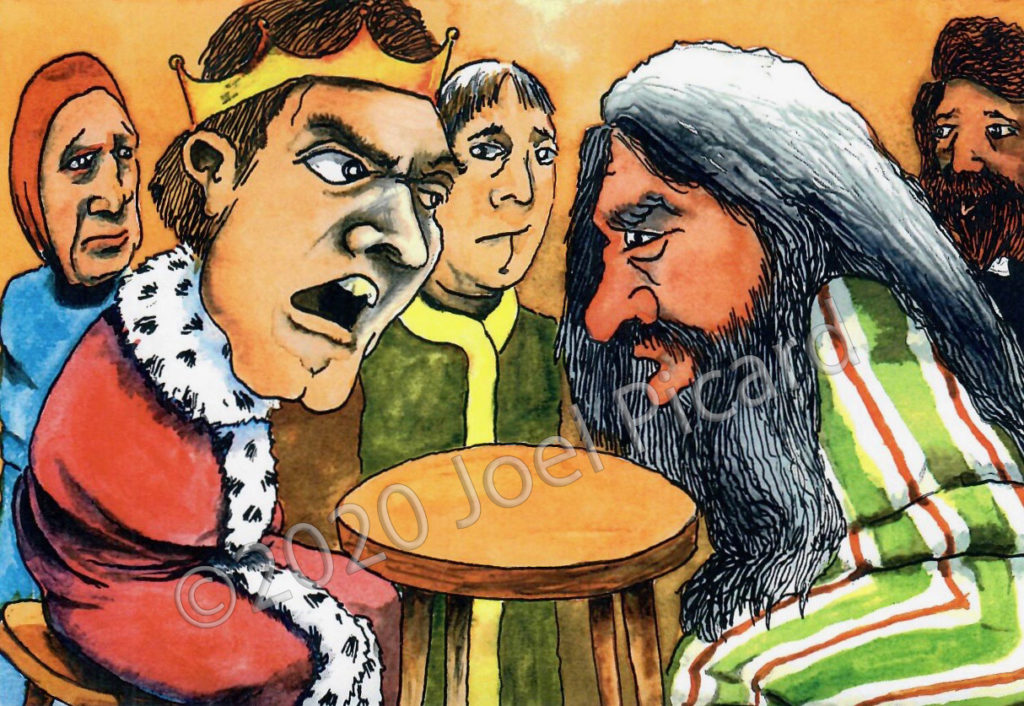Exodus 7-11

“Well, you keep saying that, Moses, but I really don’t believe you. I don’t think that you do have anything up your sleeve. I don’t even believe that you have any sleeves. And besides, why should I expect your tenth threat to be so life-threatening, when clearly we’ve survived the previous nine? You’re nothin’ but a lot of talk and a stick.”
Moses and Pharaoh square off at the negotiating table. The stakes are high as the union steward takes on the pyramid baron, big-shot, capitalist king.
Demonstration after demonstration levied against the Pharaoh is sluffed off. The finger of God is not at all evident to him. The Pharaoh is not pounded into submission and forced to retreat, demonstrative of God’s respect for the freedoms of men. God does not coerce. The famous phrase, “And God hardened Pharaoh’s heart” might well be heard as a euphemism saying, ‘Of course, Pharaoh could not help but be Pharaoh. And one could hardly expect and would not predict otherwise from him. The Pharaoh was allowed to be Pharaoh all the way to the end.” The perspective of the text and the narrator who delivers it is that the finger of God in the plagues is only all too evident. But, on the ground, the evidence is much more ambiguous. And so, the first nine plagues come off almost as a sort of negotiating failure. Pharaoh fends off Moses’ demands. He really doesn’t budge an inch. And this gives rise the terrible shape of the 10th plague which has next to nothing in common with the previous 9–from natural disasters to violence enacted most ferociously.
©2020 Joel Picard